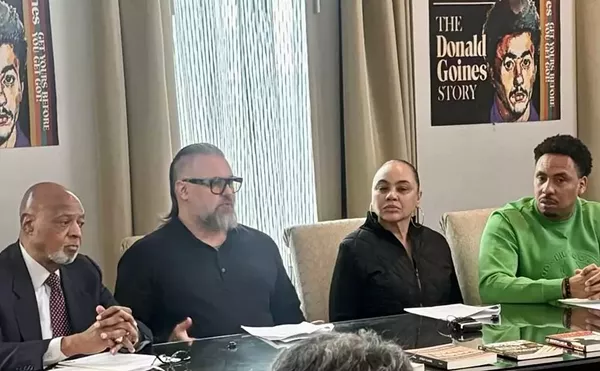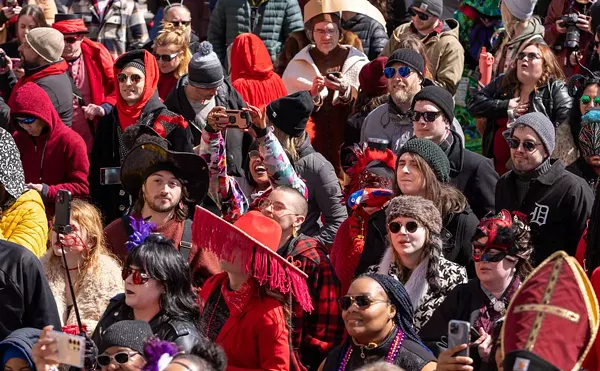Jazz pianist Thelonious Sphere Monk — the "high priest of bebop" — was a man who thought deeply and spoke economically. So it's interesting that Laurence Holder and Rome Neal, writers and co-directors of the play Monk, would examine the revolutionary musician's life and work through a one-man play that calls for a great deal of gab. At SereNgeti Galleries, patrons come face-to-face with Holder and Neal's version of a man with an uncanny mind. Neal, who plays Monk, talks his ass off. As a result, the audience is privy to not only his thoughts, but how his thought process worked.
Monk arrived on the jazz scene more than 60 years ago. A prodigious, genre-bending talent, he quickly earned the admiration and scrutiny of his peers, thanks to his ability to manipulate music to fit his personality. Monk, as Neal intones, approached composition logically, the way you would mathematics, but created music soulfully. And if Monk was able to make music reflecting his soul, he was truly in a place that few others had visited.
This one-man play is all Monk, all the time, and the intimate setting gives off a "'Round Midnight" vibe that buoys the script. Holder and Neal also provide a bit of dramatic irony by using language — the very thing Monk approached with caution — to articulate his true nature. All that's left is Neal's portrayal; it's the actor's job to rhetorically translate the stream-of-consciousness that was Monk's mind-set and his music. Legendary drummer Max Roach, a contemporary of Monk, saw the production. His response? Neal is Monk.
Papa Roach is right. Neal's authenticity is important — necessary, even. For many, this play is like a meditation on Monk's music. But for some, it will also be educational. With a very personal writing style, Holder and Neal make audience experiences enjoyable, offering accurate historical information blended with a unique perspective. Monk recalls his own upbringing as a burgeoning piano talent and a fine athlete. He talks about issues with drugs and his family. He canvasses his first tour at age 17, playing piano for a traveling evangelist. He also remembers cats like Miles Davis, Charlie Parker and friend Bud Powell who tried in vain, as he tells it, to study (or steal) his style.
The use of space — figuratively — is one of the play's strengths. As Monk was known to "lay out" songs, pulling out parts so that that his band could experiment freely, the writers inject Neal's monologue with pregnant pauses, and it's an audible silence that loners are accustomed to.
Dance is another of this production's strengths. Used to emphasize Monk's thoughts and movements, and also convey otherwise indescribable dimensions of the musician's personality, he performs a variety of styles, including African, swing and bebop. The most annoying part of the production is an off-stage actor who serves as the voice of Monk's subconscious, occasionally as a counterpoint to Monk's musings. Sure, its purpose is clear, but that doesn't make it palatable. He talks too much and at least midway through, it becomes a distraction.
Monk's music, like much of jazz, was a sonic reflection of American angst during the '50s and '60s. It was angry, creative and desperate, and pushed boundaries. Monk made the art world uncomfortable, and the result of his input was a change in jazz composition that persists to this day. Kudos to Holder and Neal for doing a painstaking thing, capturing an unconventional legend both personally and professionally, in a way we all can understand.
Monk: A One Man Play runs 8:30 p.m., Wednesday, Feb. 15, through Sunday, Feb. 19, at SereNgeti Galleries, 2757 Grand River Ave., Detroit; 313-963-8099. Tickets are $20.
Khary Kimani Turner writes about music and theater for Metro Times. Send comments to [email protected]





